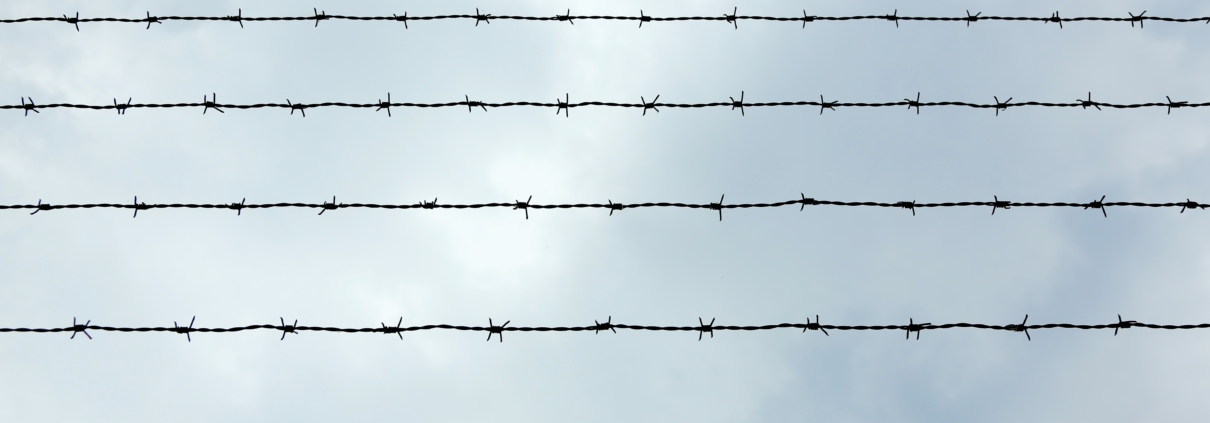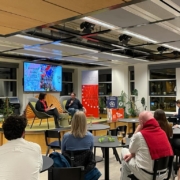Using Alternatives to Imprisonment and Harnessing the Power of Community to Increase Effective Justice: in conversation with Penal Reform International
We spoke to Tanja Dejanova, Programme Coordinator at Penal Reform International (PRI): a member of The Hague Humanity Hub. As part of its work in Europe and across the globe, PRI works to advocate for real alternatives to imprisonment that can help ensure fair and effective criminal justice systems contribute to greater human rights protection(s) and safer societies.
Whilst the idea of separating people guilty of crimes from the rest of a society can be traced back to the initial usage of the state as an organisational assemblage, the modern idea of a ‘prison’ is most likely to have developed in 16th Century Europe. But, says Tanja Dejanova, “it is important for criminal justice systems and society more largely to move away from thinking of imprisonment as the default or ‘normal’ way of responding to criminal offences. Community-based options for criminal sanctions and measures – used in proportionality – support better outcomes for the people in conflict with the law but also for societies at large.”
And there is plenty of evidence to back this up: according to the UN, the mortality rate in prisons is up to 50% higher than in the community as a whole. This is due to a mixture of reasons, many of which interlock to create further negative outcomes for vulnerable people. “Although prison conditions should not pose an additional measure of punishment, punitive sentencing practices, discrimination, and serious underfunding of criminal justice contribute to prisons often failing to meet even basic standards”, says Tanja. “This leaves people in prison with often worse physical and mental health, higher risks of violence and death, increasingly limited connections with loved ones and society, and often limited opportunities and tools for leading crime-free lives and re-entering society upon release.”
For effective criminal justice systems, proportionality is an important principle for responding to crime, and solutions should be evidence and human rights-based
“International standards, such as the UN “Tokyo Rules” for Non-Custodial Measures and the UN “Bangkok Rules” on the Treatment of Female Prisoners and Non-Custodial Measures for Women Offenders have at their core the principle of proportionality”, says Tanja, “which means that the use of prison must be proportionate to the offence a person is accused of or convicted for, and the risks posed to public safety and the criminal procedure.”
In some countries there is a tendency of governments to utilise promises to be ‘tough on crime’ as part of political promises to gain votes, says Tanja. “One example is with drug policies. Punitive laws under ‘the war on drugs’ have led to an estimated 2.2. million people worldwide in prison for drug offences, driving prison numbers up in some regions. Almost half a million people globally are detained for personal use, despite zero progress towards ‘eliminating’ drugs – the stated purpose of such policies.”
However, says Tanja, we are reaching a turning point where more and more countries are recognising that punitive criminal justice practices do not create safer societies nor address the needs and rights of the people within their reach and are moving toward rehabilitative justice systems. “As we document in our forthcoming report Global Prison Trends 2023, now there are also commitments from all UN member states to adopt a rehabilitative approach and the need for this to reduce offending, for instance in the Kyoto Declaration from the UN Congress on Crime Prevention and Criminal Justice in 2021.”
So what might a more rehabilitative, social, and community-based criminal justice system look like?
There are multiple reasons for embracing community-based sentences. “A community-based sentence can enable a person to maintain better access to a variety of services – from education or training to employment and health care – and their support networks within society, while addressing offending behaviour and supporting proportionate criminal justice responses .”
Indeed, PRI has worked on promoting non-discriminatory alternatives to imprisonment across Europe, joined by partners from academia, civil society and criminal justice services. Unexpectedly the COVID-19 pandemic provided a real world ‘living lab’ for this approach, with large numbers of people serving prison sentences being allowed to complete their sentence in the community, with no real spikes in crime evidenced from studies available. This demonstrated that in many cases community-based sentences have no negative effect on public safety.
What we do need to bear in mind when thinking about criminal sanctions and better use of alternatives to prison, says Tanja, are the “many, often intersecting challenges and barriers people may face due to their personal or background characteristics or identities.” PRI’s research has found that people at these intersections may be ineligible for community-based sentencing or disproportionately receive prison sentences; moreover, the unmet needs of some marginalised or minority groups in contact with criminal justice systems often add up to even greater challenges for people trying to serve their sentences and reintegrate.
For more information about the work of Penal Reform International and their initiatives, check out their website. Our thanks to Tanja Dejanova for her time and input in this piece.
Photo by Robert Klank on Unsplash









